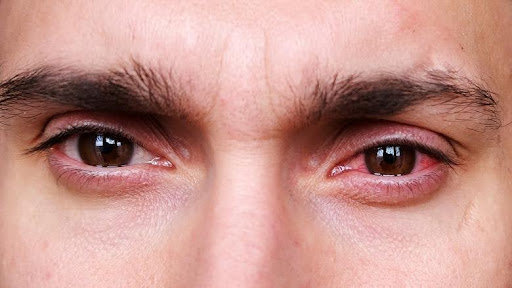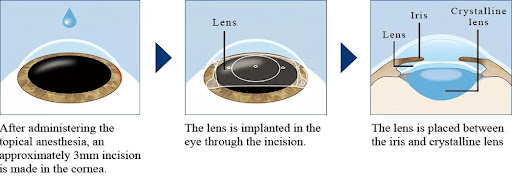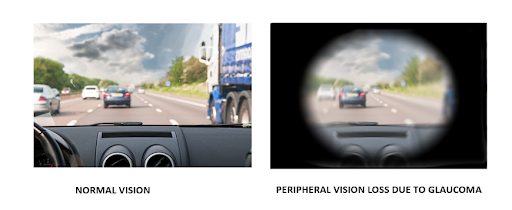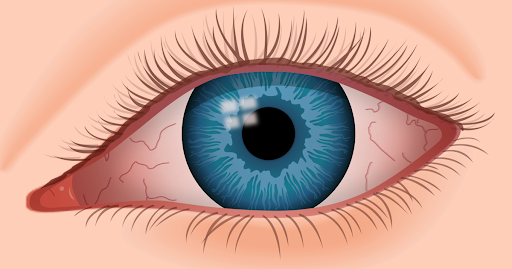In the hustle and bustle of our daily lives, we often underestimate the potential harm sunlight can cause to our eyes. Photokeratitis, a condition caused by overexposure to ultraviolet (UV) rays, is a serious concern that demands our attention.
Amidst the complexities of this eye concern, Eyeonce Eye Clinic’s proficient eye doctors, Dr. Paik Dong Won and Dr. Jung Sae Rom are committed to providing help and support for patients dealing with photokeratitis, using state-of-the-art eye technologies.
Understanding Photokeratitis
Photokeratitis—often referred to as “sunburn of the cornea”—is a painful eye condition caused by overexposure of the eyes to ultraviolet (UV) rays. The cornea, the clear part of the eye covering the iris and pupil, is particularly susceptible to damage from UV rays. This condition is akin to a sunburn on the skin but occurs in the cornea.
Signs and Symptoms
Photokeratitis typically unveils itself within a few hours of exposure to ultraviolet (UV) rays, bringing forth signs and symptoms that should not be overlooked:
- Eye Redness – One of the earliest and most noticeable signs is bloodshot or red eyes. The dilation of blood vessels in the eye is a direct response to the harmful effects of UV radiation on delicate tissues.
- Tearing – Excessive tearing, leading to watery eyes, is another common manifestation. This response is the eye’s natural mechanism to flush out irritants and alleviate the damage caused by UV exposure.
- Pain – Photokeratitis often presents with a gritty sensation, pain, or discomfort in the eyes. This discomfort arises from the inflammation and irritation of the cornea, the eye’s front surface.
- Blurred Vision – Corneal damage resulting from Photokeratitis can induce temporary blurriness in vision. This impairment occurs as the cornea, responsible for focusing light into the eye, undergoes stress and inflammation.
- Sensitivity to Light (Photophobia) – A hallmark symptom of Photokeratitis is an increased sensitivity to light, known as photophobia. Everyday light levels are typically tolerable and become sources of discomfort for individuals experiencing this condition.
Understanding the signs and symptoms of Photokeratitis is paramount for prompt intervention and effective management. If you experience any of these signs, seek specialized care from Eyeonce Eye Clinic
Causes
Photokeratitis finds its roots in exposure to ultraviolet (UV) rays, with various sources contributing to this eye concern such as:
- Sunlight’s Impact – Prolonged exposure to sunlight emerges as a primary culprit, especially in high-altitude environments where UV radiation is intensified. Seeking shade, wearing UV-protective sunglasses, and seeking consultation from a trusted eye clinic such as Eyeonce are crucial for maintaining eye health.
- Artificial UV Sources – Beyond natural sunlight, Photokeratitis can be induced by artificial UV sources. Welding arcs, tanning beds, and certain industrial lights emitting UV radiation pose significant risks.
Understanding the causes of Photokeratitis empowers individuals to take proactive measures in various settings, from leisurely outdoor activities to occupational environments.
Treatment
Experiencing the discomfort of Photokeratitis warrants swift and precise intervention, and Eyeonce Eye Clinic, under the adept care of Dr. Paik Dong Won and Jung Sae Rom, excels in offering a comprehensive treatment process.
Initial Assessment
Upon arriving at Eyeonce Eye Clinic, your journey toward recovery begins with a thorough examination. Our eye care specialists, leveraging their expertise, meticulously assess the extent of Photokeratitis damage and identify associated symptoms.
Symptomatic Relief
Immediate relief is a priority, and Eyeonce Eye Clinic employs measures to alleviate discomfort. Lubricating eye drops are often prescribed to soothe irritation, reduce dryness, and minimize pain.
Rest and Recovery
Rest is instrumental in the healing process. Patients are advised to minimize eye strain and avoid bright lights during the recovery phase. This period allows the cornea to repair and regenerate.
Medication for Pain Management
If necessary, pain management medications may be recommended to ensure the patient’s comfort. Over-the-counter pain relievers can be prescribed based on individual needs.
Follow-up Examinations
To track progress and address any emerging concerns, follow-up appointments are scheduled. These examinations enable the eye care specialists to assess healing, adjust treatment plans if needed, and provide guidance on further recovery steps.
Prevention Strategies
Preventing future occurrences is a key focus at Eyeonce Eye Clinic. Dr. Paik Dong Won and Jung Sae Rom work closely with patients to develop personalized strategies, emphasizing UV protection measures and lifestyle adjustments to mitigate the risk of photokeratitis.
Patient Education
Empowering patients with knowledge is integral to Eyeonce Eye Clinic’s approach. Educational sessions cover the importance of UV protection, recognizing early symptoms, and adopting eye-friendly practices for sustained eye health.
Collaborative Care
Eyeonce Eye Clinic fosters a collaborative environment, involving the patient in their care journey. Open communication between the patient and the medical team ensures tailored treatment and a shared commitment to optimal eye health.
Ongoing Support
Beyond the immediate treatment, Eyeonce Eye Clinic provides ongoing support. Patients are encouraged to reach out with any concerns, ensuring a continuum of care that extends beyond the recovery period.
Preventive Eye Care Plans
To safeguard against future UV-related issues, Eyeonce Eye Clinic offers personalized preventive care plans. These plans incorporate regular eye check-ups, UV protection strategies, and lifestyle adjustments tailored to the individual’s needs.
Navigating the treatment process of photokeratitis at Eyeonce Eye Clinic is a collaborative and comprehensive endeavor. The dedication of Dr. Paik Dong Won and Jung Sae Rom, coupled with cutting-edge treatments and patient-centric care, ensures a thorough and effective recovery for those grappling with photokeratitis
Why choose Eyeonce Eye Clinic Gangnam for photokeratitis treatment?
Utmost Patient Care
Our eye care professionals and staff ensure to give you your money’s worth. We guarantee you receive the best medication possible and assure you that you are guided and understood, making you feel comfortable and confident at every step.
Comprehensive Consultation
Eyeonce Eye Clinic offers comprehensive eye examinations to evaluate your condition and determine the best eye strain treatment. Our ophthalmologists take their time to cater to your questions and address your concerns, ensuring you make an informed decision about our vision correction options.
Expert Eye Doctors
Our ophthalmologists, Head Director Dr. Paik Dong Won and Medical Director Dr. Jung Sae Rom, are highly knowledgeable and adept in treating eye strain. They always use the latest techniques and technologies to ensure optimal results.
Frequently Asked Questions (FAQs)
While photokeratitis typically results in temporary discomfort and vision issues, prolonged or severe cases may lead to lasting damage.
Symptoms of photokeratitis often manifest within a few hours of exposure to ultraviolet (UV) rays. It is crucial to recognize early signs for timely intervention.
Regular eye check-ups are recommended, especially if you spend significant time outdoors. Eye examinations can detect early signs of photokeratitis and other eye conditions, ensuring timely intervention.
Conclusion
Understanding the risks, symptoms, and preventive measures associated with photokeratitis is paramount in preserving the health of our eyes. The invisible threat posed by UV rays necessitates proactive steps to ensure lasting eye wellness. Schedule a consultation with Eyeonce Eye Clinic today because your vision deserves the best care from experts who truly understand the importance of safeguarding your precious sight.



